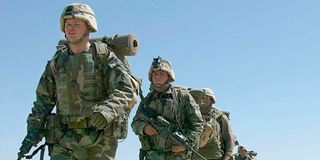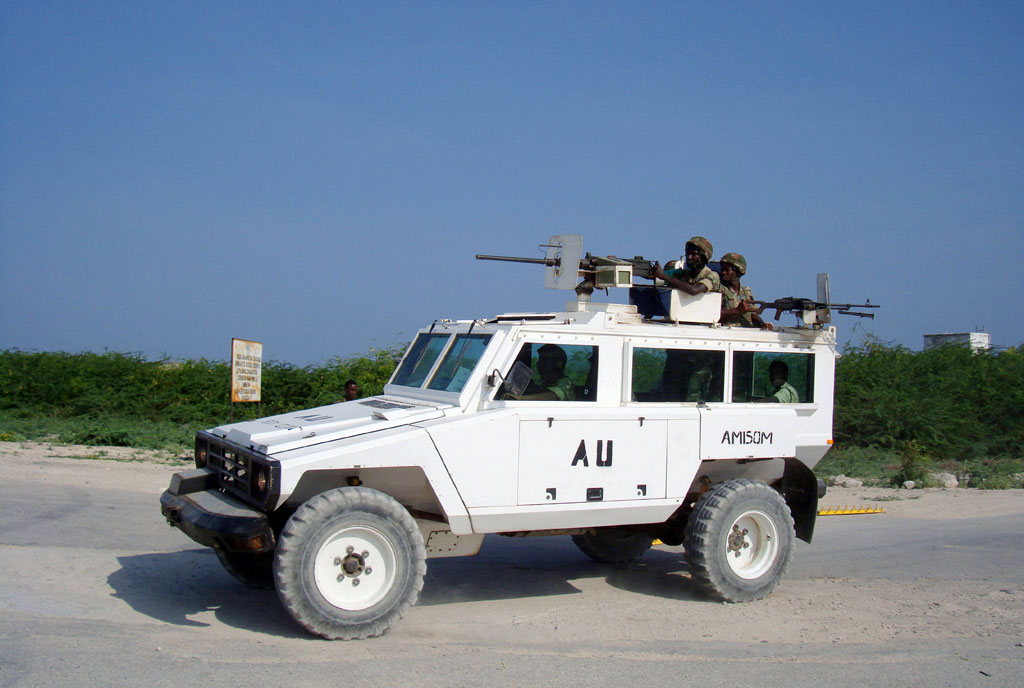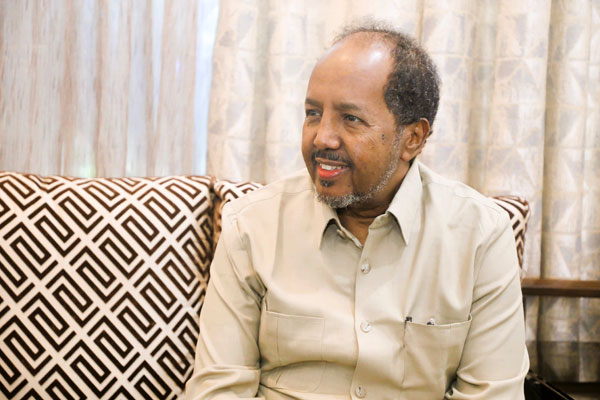Biden reestablishes US troop presence inside Somalia

A file photo of US troops arriving for a defence mission in Bagram. The US plans to deploy troops to Somalia.
What you need to know:
- The move reverses an order from Biden's predecessor Donald Trump, who in late 2020 pulled nearly all US forces from the Horn of African nation as he sought to wind down US military engagements abroad during his final weeks in office.
By reinserting US troops, Washington will reduce the risks involved in back-and-forth mobilisations of forces that have been conducting counterterrorism operations inside Somalia.
The move would boost efficiency and the effectiveness of special operators, and allow for uninterrupted training periods with local partners.
President Joe Biden has ordered the reestablishment of a US troop presence in Somalia to help local authorities combat the Al-Shabaab militant group, a senior American official has said.
The move reverses an order from Biden's predecessor Donald Trump, who in late 2020 pulled nearly all US forces from the Horn of African nation as he sought to wind down US military engagements abroad during his final weeks in office.
READ MORE
Biden "approved a request from the Defense Department to reposition US forces in East Africa in order to reestablish a small persistent US military presence in Somalia," the official said on Monday.
Fewer than 500 troops will be involved, the official said, adding that it will "take a little bit of time to reach that" level in Somalia.
That is slightly smaller than the original footprint of 750 US soldiers who spent years in the country conducting operations against Al-Shabaab, but were then removed under Trump and rebased in neighboring countries Kenya and Djibouti.
In December 2020, just before he left office, Trump directed the withdrawal from Somalia "against the advice of senior US military leadership," the official said.
"Since then Al-Shabaab... has unfortunately only grown stronger," the official added.
Support from Mogadishu
The official suggested that Biden's decision had more to do with the security of US forces than with the election on Sunday of a new Somali president, Hassan Sheikh Mohamud, after more than a year of political instability and a drought crisis.
Somalian leaders over recent years have been constant in their support for cooperation with the US military in battling Islamic extremists, the official said, adding that Washington remains confident the new administration will continue to do so.
Congratulating the newly elected president, US Secretary of State Antony Blinken urged him to develop "security forces to prevent and counter terrorism and assume full security responsibility from the African Union Transition Mission in Somalia."
By reinserting US troops, Washington will reduce the risks involved in back-and-forth mobilisations of forces that have been conducting counterterrorism operations inside Somalia.
The move would boost efficiency and the effectiveness of special operators, and allow for uninterrupted training periods with local partners.
Pentagon Spokesman John Kirby said Monday that Defense Secretary Lloyd Austin viewed the current form of operations as "inefficient and increasingly unsustainable."
“The purpose here is to enable a more effective fight against Al-Shabaab by local forces... Al-Shabaab has increased in their strength and poses a threat," he said.
Kirby also insisted that the US forces will act as a supportive element and that Somali forces will continue to be responsible for directly battling extremists.
US troops "will continue to be used in training, advising and equipping partner forces to give them the tools that they need to disrupt, degrade and monitor Al-Shabaab," the Pentagon spokesman said.
"Our forces are not now, nor will they be, directly engaged in combat operations," he said.





